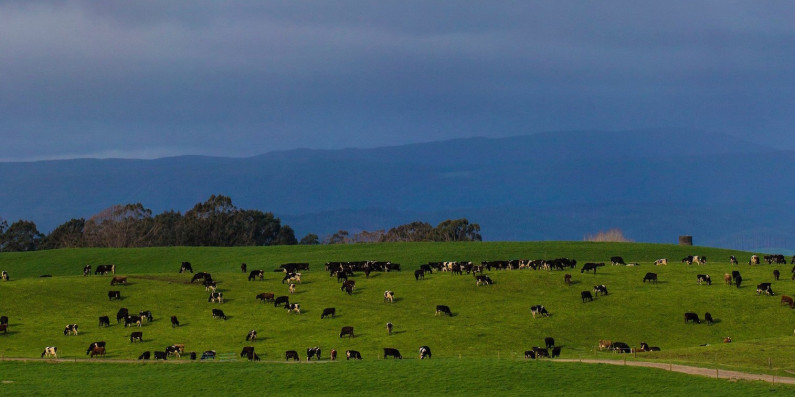
Update for the rural community - June 2023
Find out what's happening in this update for the rural community. It includes information on freshwater farm plans and the Integrated National Farm Data Platform update.

Find out what's happening in this update for the rural community. It includes information on freshwater farm plans and the Integrated National Farm Data Platform update.
Freshwater farm plans will start being introduced from 1 August 2023 in parts of Waikato and Southland, with other regions to follow. We’ll include more information on the rollout in other regions in our next update.
The freshwater farm plan regulations were formally notified on 8 June.
Publication of the detailed regulations comes after nearly three years of the Ministry for the Environment (MfE) and the Ministry for Primary Industries (MPI) working with Te Uru Kahika (Regional and Unitary Councils Aotearoa), Māori, farmers and advisors, and industry bodies to develop a practical system that will provide flexibility for farmers and growers.
Many farmers and growers have already put in place a farm environment plan or are part of an industry programme. We are working with industry groups on what’s needed to align existing programmes with the new freshwater farm plan regulations.
Around 34,500 farming enterprises are expected to eventually need a freshwater farm plan (any farm with 20 hectares or more in arable, pastoral or mixed use, or five hectares or more in horticultural use).
MfE has published its first four guidance documents with more to follow soon, including for the certification and auditing processes. How-to guides for farmers and advisors are being developed by Te Uru Kahika ahead of the rollout of freshwater farm plans in Waikato and Southland. Industry organisations are also working on providing information and engaging with their members to help with the introduction of the system.
| Title | Description | Link |
| Freshwater farm plan system overview | Guidance for regional councils and others to understand the regulations. It provides an overview of the system, its purpose and the key steps in getting a plan certified. | Freshwater farm plan system overview |
| Developing a freshwater farm plan | Guidance for farmers and farm plan developers on how to develop a certified freshwater farm plan. | Developing a freshwater farm plan |
| Freshwater farm plans Guidance on preparing catchment context, challenges and values information (CCCV) |
Guidance for councils and tangata whenua on how to develop the catchment context, challenges, and values to give effect to the Resource Management (Freshwater Farm Plans) Regulations 2023. This includes suggested content and how to present the information. |
Guidance on preparing catchment context, challenges and values information |
| Tangata whenua and the freshwater farm plan system - a guide for regional councils | Guidance for councils in their work with tangata whenua to implement the Resource Management (Freshwater Farm Plans) Regulations 2023. | Tangata whenua and the freshwater farm plan system: A guide for regional councils |
Councils in areas where freshwater farm plans are scheduled to be ‘turned on’ are working on updates and engagement with farmers and industry organisations on what happens next.
Once the regulations take effect in a catchment, a farm operator has 18 months to prepare their first freshwater farm plan, which is then submitted to a certifier to ensure it is fit-for-purpose.
Each freshwater farm plan will need to be audited after 12 months (by a different person to the certifier) and will be graded (on a scale from A to D). Regional councils will receive a report on every freshwater farm plan audit: grades A and B will mean a longer time before the next audit is due, C and D grades will have a shorter time between audits.
In areas where the system has not yet been ‘turned on’, farmers and growers can start getting prepared . This will make it easier when freshwater farm plans eventually take effect in their area.
To become a freshwater farm plan certifier or auditor, applicants must go through the appointment process set out in the regulations. AsureQuality has been engaged to design, establish, and operate the appointment process, on behalf of regional councils. Ministry for the Environment and Te Uru Kahika are setting up the system infrastructure ahead of rollout in the first two regions (1 August).
The appointment process covers:
MfE is providing funding for workforce development, via the Essential Freshwater Fund, to support the rollout of freshwater farm plans:
Keep an eye out on GETS over the coming months as individual procurement initiatives are posted.
Te Uru Kahika, with support from MfE and MPI, is developing the integrated national farm data platform (INFDP).
The INFDP, intended to be a secure, standardised data collection and reporting tool for freshwater farm plans and other Essential Freshwater regulations, is expected to be completed by mid-2024. Until then, an interim solution is being developed to ensure regulatory requirements are met, with straightforward migration of data to the INFDP system when it is ready.
The INFDP will be used by freshwater farm plan certifiers and auditors, regional councils, and MfE.
If you have something you’d like answered, please email us at freshwaterfarmplans@mfe.govt.nz